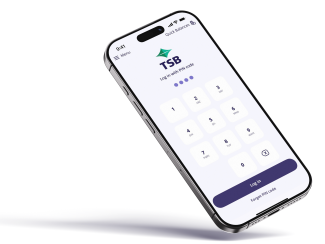Anyone can be targeted by a scam. Stay protected by keeping up to date with the latest scams, learning how to avoid them and knowing what to do if you think you’ve been scammed.
Current scams to look out for
Read about some of the latest scams so you know what to keep a look out for.
Planning to invest?
The Financial Markets Authority (FMA) regularly publishes updates on suspected and confirmed investment scams. Check the latest scam warnings on the FMA website.
Tips to avoid scams
Spread the word
Talk to friends and family about recent scams you’ve heard about – awareness is key to helping prevent the spread of scams.
Watch out for links
Be wary of links in unsolicited emails and texts. If you’re unsure, don’t click or respond.
Be wary of cold calls
Don’t be afraid to say no. If you receive a call and are unsure about who you’re talking to, hang up and call the business back on their registered number.
Check your transactions
Review your account regularly for suspicious activity.
Shop smart online
Stick to trusted websites and check they have valid contact details and secure payment systems.
Act quickly
If you think you’ve shared your account details with a scammer or your account is compromised, contact us immediately on 0800 872 226.
Remember, TSB staff will never:
- Ask you to share your online banking or app login details
- Ask you to read one-time codes out loud
- Request remote access to your device or ask you to install software
- Ask for your full card details
- Send you text messages with links in them (no NZ bank does this)
Types of scams

Identifying scams
Scams come in many forms, but they all aim to trick you into giving away personal information or access to your money. Watch out for these warning signs to help keep yourself safe:
- Unexpected text messages that ask you to click a link or complete an action – often about everyday things like toll payments, car registration or courier packaging. These links lead to fake websites or install malware.
- A sense of urgency around a request, claiming you’ll lose money, miss a payment or face penalties if you don’t act immediately.
- Requests for personal information or remote access – no legitimate business will ask for your banking login, PIN or access to your device.
- Odd links and attachments in emails. Clicking on these can download malicious software onto your device. Tip: Hover your mouse over a link or attachment and it will show you the real destination you are being directed to.
- Emotional, dramatic stories used to create sympathy before requesting money.
- Bad grammar and generic greetings – messages starting with ‘Dear Customer’ or containing spelling mistakes are a red flag.

Think you've been scammed?
-
Stop all contact with the scammer and call us
If you think you've given your bank details to a scammer, or your account is compromised, stop all contact with the scammer and call us immediately on 0800 872 226.
- Take action to protect yourself
- Change your passwords – use strong, unique passwords for each account.
- If your device could be compromised, take it to a professional to have it cleaned.
- Enable two-factor authentication wherever possible.
-
Report the scam
Reporting scams helps authorities take action and prevents others from being targeted. Don’t keep it secret – scammers rely on silence. If something isn't right with your account, stop all contact with the person you've been communicating with and call us immediately on 0800 872 226 (or +64 6 968 3700 from overseas).
- Text message scams: Forward the text for free to the Department of Internal Affairs at 7726
- Online scams: Report to Netsafe (0508 638 723)
- Cybersecurity issues: Contact the National Cyber Security Centre
- Investment scams: Report to the Financial Markets Authority
Once reported, block the sender and delete the message.






Scammers contact you unexpectedly through WhatsApp, Instagram or Facebook pretending to be a family member or friend in urgent need of help. They often claim their phone is lost or damaged and ask for money or gift cards. They may avoid calls and communicate only by text or direct message, making excuses for why they can’t speak.
Tip: Verify the person’s identity by calling them on their usual number or asking a question only they would know.